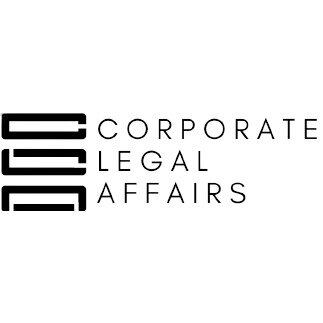Best Mortgage Lawyers in Multan
Share your needs with us, get contacted by law firms.
Free. Takes 2 min.
Free Guide to Hiring a Real Estate Lawyer
List of the best lawyers in Multan, Pakistan
About Mortgage Law in Multan, Pakistan
Mortgage laws in Multan, Pakistan are governed by a combination of national legislation and local regulations. The predominant law governing mortgages is the Transfer of Property Act, 1882, which outlines the legal framework for the creation, enforcement, and settlement of mortgages. Mortgages in Pakistan typically involve the pledging of real estate as security for a loan. The borrower maintains possession of the property, while the lender gains a legal interest in it until the loan is repaid. Understanding these laws is crucial for both lenders and borrowers to ensure a fair and lawful transaction.
Why You May Need a Lawyer
There are several circumstances under which you might need legal assistance concerning mortgages in Multan:
- Drafting and Reviewing Contracts: A lawyer can help draft or review mortgage agreements to ensure that all terms are legal and in your best interest.
- Disputes: Legal assistance might be necessary if disputes arise between borrowers and lenders regarding terms or defaults.
- Foreclosure Issues: If you're facing foreclosure, a lawyer can provide guidance on your rights and possible defense strategies.
- Registration and Documentation: Lawyers ensure proper registration and documentation of mortgage deeds, which is critical for enforcing mortgage rights.
- Negotiations: Legal experts can assist in negotiating better terms with lenders.
Local Laws Overview
In Multan, several local considerations are significant in the context of mortgages:
- Stamp Duty: The Punjab government, which governs Multan, levies a stamp duty on mortgage deeds, the rates of which can affect the total cost of obtaining a mortgage.
- Land Registration: Proper registration with relevant land authorities is mandatory and helps in establishing the priority of mortgage claims.
- Sharia Compliance: Some financial institutions offer Sharia-compliant mortgage products, following Islamic banking principles.
- Enforcement of Security Interest: Local laws outline specific procedures for the enforcement of security interests, which must be adhered to during foreclosure proceedings or in case of default.
Frequently Asked Questions
What are the main types of mortgages available in Multan?
Common types include fixed-rate mortgages, variable-rate mortgages, and Islamic (Sharia-compliant) mortgages.
How does the foreclosure process work in Multan?
If a borrower defaults, the lender can initiate a foreclosure process to reclaim the property, following legal procedures set out by local and national laws.
What documents are required for a mortgage application in Multan?
Typically, documents include proof of income, property title deeds, identity proof, and any existing loan statements.
Is it necessary to register a mortgage deed?
Yes, registration of the mortgage deed with local land authorities is essential for legal validity and enforcement.
What are the typical interest rates for mortgages in Multan?
Interest rates vary based on the lending institution and the type of mortgage, but they align broadly with the country's economic conditions.
Can foreigners obtain a mortgage in Pakistan?
Yes, but foreign nationals face additional restrictions and requirements compared to local borrowers.
How can I ensure my mortgage is Sharia-compliant?
Seek products labeled as Islamic mortgages from certified Islamic banks or consult with an Islamic finance expert.
What happens if I miss a payment?
Missing a payment could result in penalties, and repeated failures could lead to foreclosure, so seek advice promptly if you're struggling.
Can I refinance my mortgage in Multan?
Yes, refinancing is an option where you replace your existing loan with a new one, potentially with better terms.
What role does the State Bank of Pakistan play in mortgages?
The State Bank of Pakistan regulates financial institutions, ensuring compliance with national policies and guidelines.
Additional Resources
For more information or assistance, consider reaching out to the following:
- State Bank of Pakistan: Provides regulations and guidelines related to mortgage and financing.
- The Punjab Land Records Authority: For registration and land-related inquiries.
- Local Bar Associations: For referrals to qualified lawyers specializing in property and mortgage law.
- Consumer Rights Protection Councils: For advice and support regarding mortgage disputes and borrower rights.
Next Steps
If you require legal assistance, consider the following steps:
- Identify Your Needs: Clarify whether you need contract review, dispute resolution, or other services.
- Consult a Lawyer: Seek a lawyer experienced in mortgage law to provide tailored advice.
- Document Preparation: Gather all relevant documents, such as property deeds and loan agreements, before consultations.
- Understand Your Rights: Familiarize yourself with your legal rights and obligations as a borrower or lender.
- Seek Prompt Advice: Do not delay seeking legal help if you anticipate issues with your mortgage.
Lawzana helps you find the best lawyers and law firms in Multan through a curated and pre-screened list of qualified legal professionals. Our platform offers rankings and detailed profiles of attorneys and law firms, allowing you to compare based on practice areas, including Mortgage, experience, and client feedback.
Each profile includes a description of the firm's areas of practice, client reviews, team members and partners, year of establishment, spoken languages, office locations, contact information, social media presence, and any published articles or resources. Most firms on our platform speak English and are experienced in both local and international legal matters.
Get a quote from top-rated law firms in Multan, Pakistan — quickly, securely, and without unnecessary hassle.
Disclaimer:
The information provided on this page is for general informational purposes only and does not constitute legal advice. While we strive to ensure the accuracy and relevance of the content, legal information may change over time, and interpretations of the law can vary. You should always consult with a qualified legal professional for advice specific to your situation.
We disclaim all liability for actions taken or not taken based on the content of this page. If you believe any information is incorrect or outdated, please contact us, and we will review and update it where appropriate.









